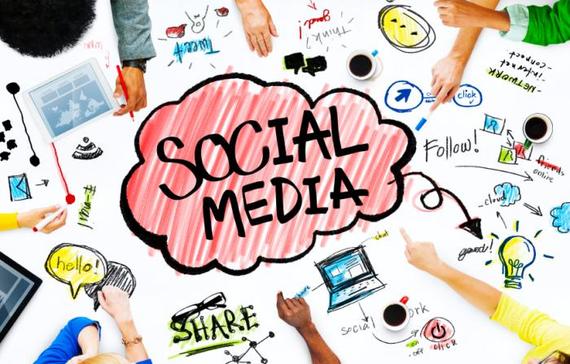What we know about girls and social media is bleak. According to the recent Common Sense Census ("Media Use by Tweens and Teens"), the average teen girl spends about an hour and half a day on social media, and only one-third "take pleasure from it." In CNN's report #Being13: Inside the Secret World of Teens," girls admitted to checking social media up to 100 times a day to see if they were getting "enough likes" or being excluded, while monitoring the potential need to do social damage control.
I can envision uses far better.
What if kids were taught that the very point of social media is to inspire, lift up others, and make each other laugh? It won't be easy; we're all used to seeing social media spread snark and gossip. But, really, no one wants to spend so many hours a week fearing for her reputation and safeguarding her social status. I've found that what works far better than preaching is sharing social media that's positive and so entertaining that it goes viral.
Below are my favorite three from 2015:
For breaking gender stereotypes with humor:
#DistractinglySexy: When Nobel Prize winner Tim Hunt, a biochemist and professor at University of College London, made the terrible decision to say women shouldn't be scientists because they fall in love too easily and cry when criticized, female scientists took to Twitter. They posted pics of themselves with science gear, making hilarious sarcastic comments about hard it is to do their work with all the tears and mushy sentiments distracting them. They used the hashtag #distractinglysexy, and the collection is one of the funniest and most eye-opening campaigns ever. It shattered the stereotype that female scientists are boring and humorless, and was probably the best PR that scientists could ask for. Tim Hunt: forced to resign.
For breaking gender stereotypes with a provocative question:
#LikeAGirl: This ad for Always feminine products directed by filmmaker Lauren Greenfield posed the question, "What does it mean to do something 'like a girl,' and why does it mean do something poorly?" Girls and boys of various ages in the video struggle to answer, and are forced to reevaluate old stereotypes. Interviewees end up deciding that "like a girl" means strong and and fast, and "winning the race." The ad went viral, and now has over 60 million views on YouTube. When I showed the ad to second-graders last month, three girls spontaneously jumped to their feet in a standing ovation.
For revealing biases we didn't even know we had:
#LoveHasNoLabels: In this feel-fantastic, three-minute video called "Love Has No Labels," the Ad Council and R/GA shook up people's biases about love and relationships in a poignant way. They set up a giant X-ray screen in Santa Monica, Calif., on Valentine's Day, and asked couples to perform short dances behind the screen; all you could see were the skeletons dancing together. When they were finished, they walked out in front of the screen and revealed themselves to be couples of different genders, sexual orientations, ages, and abilities. Love has many different and beautiful looks. Over 55 million people watched this campaign on YouTube.
Share these campaigns with your child(ren), and ask:
1. How does it make you feel when you watch it?
2. Why do you think it went viral?
3. How do you feel about what your friends and "followers" post on social media?
4. Have you used your social-media to inspire others? If so, how did it feel?
Bonus: Tell her, "I'm going to spend the next two weeks using social-media only for good (to give shout-outs and inspire others) to see how it feels. Want it to try with me?"
I'd love to see teen girls (and also, say, everyone) spend less time on social media in 2016, and more time trying off-line hobbies and activities for fun. But I'd also love to see social media logged onto for a daily dose of glee, inspiration, and positive shout-outs. It can happen the moment we collectively decide this is what we want and deserve. Challenge your girl to lead by example. That's how change occurs.
